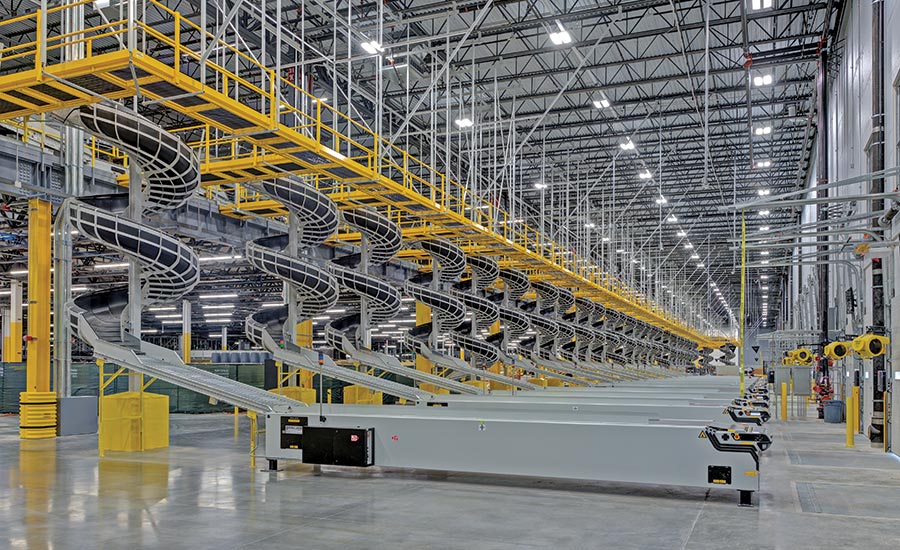Logistics Hubs: The Core of Supply Chain Operations
In the current fast-paced world of commerce, the efficiency of supply chain management plays a critical role in the success of companies. At the core of this complex system lies the distribution center, a vital component that ensures products arrive at consumers quickly and accurately. With the growth of e-commerce and a increasing emphasis on customer satisfaction, fulfillment centers have become essential in fulfilling the ever-growing demand for on-time deliveries.
A fulfillment center serves as a consolidated warehouse where inventory is held, processed, and sent out to customers. Unlike conventional warehouses, fulfillment centers focus on the entire process of order fulfillment, including accepting, sorting, packing, and distributing products. They are fitted with state-of-the-art technology and logistics systems that optimize operations and enhance overall productivity, making them indispensable for retailers and businesses looking to thrive in a competitive marketplace. Comprehending the role and function of fulfillment centers is crucial for anyone curious in the dynamics of modern supply chains.
What’s a Fulfillment Center?
A fulfillment center is a particular warehouse that plays a crucial role in the logistics chain by managing the inventory, handling, and distribution of goods for e-commerce businesses. These centers are designed to simplify order fulfillment by effectively processing incoming inventory, picking and packing orders, and handling shipping arrangements. This enables companies to dedicate time to their core activities while ensuring their customers receive products in a prompt manner.
At a fulfillment center, orders are received from various sales channels, and the products are picked from storage locations within the warehouse. The products are then packed according to specific guidelines to ensure safe transit. Fulfillment centers often utilize state-of-the-art technology and sophisticated inventory management systems to track stock levels and optimize the picking process, which enhances overall efficiency and precision in order fulfillment.
Moreover, fulfillment centers provide supplementary services such as customer service, returns processing, and even personalized packaging options. These features are particularly helpful for small to medium-sized businesses that lack the infrastructure to manage demanding logistics in-house. By outsourcing fulfilment centre to dedicated centers, businesses can improve their operational capabilities and provide superior service to their customers.
Essential Duties of Order Fulfillment Centers
Fulfillment centers serve as key facilities in the logistics network, managing the storage , handling , and dispatching of products. They handle stock control by receiving goods from producers or suppliers and storing them until an order is placed. This enables businesses to maximize their space and materials, ensuring that they only keep essential inventory on hand.
When a buyer places an order, fulfillment centers play a vital role in picking and packing the goods. Staff members meticulously pick the ordered goods from the store, wrap them carefully, and get ready them for delivery. This procedure is essential for maintaining order accuracy and improving customer contentment, as timely shipment is often a significant factor in consumer decisions.
In conclusion, fulfillment centers are responsible for dispatching the prepared packages to the clients. They collaborate with various transportation services to ensure that the orders arrive in a timely manner and in good condition. This function not just streamlines the order fulfillment process but also helps businesses grow their operations effectively, allowing them to meet growing consumer expectations without compromising effectiveness.
The Impact of Distribution Centers on Operational Effectiveness
These facilities significantly boost operational efficiency by optimizing the method of product delivery. These facilities are optimally located to improve shipping times and minimize logistics costs. By centralizing inventory in common locations, companies can secure faster access to goods, enabling on-time deliveries that satisfy customer expectations. This closeness to key transportation hubs also allows for more efficient distribution routes, further enhancing overall operational efficiency.
Furthermore, these centers employ cutting-edge technology and automation to control inventory and process orders. This mechanization reduces human error and expedites the order picking and packing, resulting in shorter turnaround times for clients' requests. The introduction of real-time tracking and inventory management systems makes certain that businesses can respond quickly to changes in demand and maintain optimal stock levels, lessening the risks of surplus or shortages.
The advantages of fulfillment centers extend further than just efficiency; they also enhance scalability for businesses. As customer demand changes, companies can grow or shrink their fulfillment activities without the need for large investment in inventory and supply chain infrastructure. This flexibility enables to adapt to market trends and customer demands more successfully, eventually leading to improved consumer satisfaction and repeat business.
